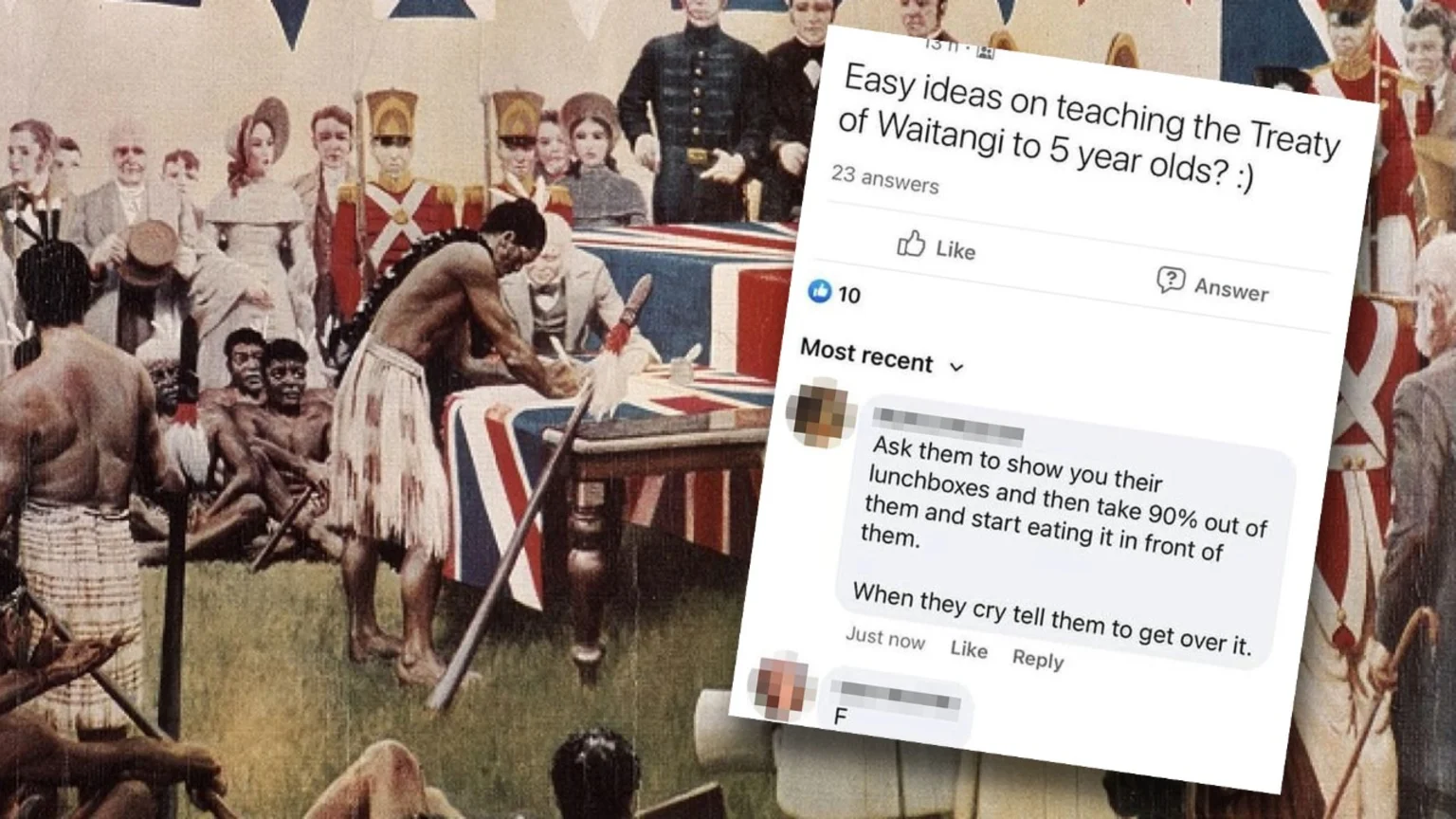New Zealand
Teacher suggests interesting method for teaching young children about the Treaty of Waitangi

Published by Mai FM Team
04 Feb 2021
One teacher's suggestion on how to teach the Treaty of Waitangi to children has caused a stir online, drawing equal parts support and criticism.
The suggestion was in response to a question posted on a social media group for Kiwi teachers that asked for ideas on how to educate 5-year-olds about the Treaty of Waitangi.
"Ask them to show you their lunchboxes and then take 90 per cent out of them and start eating it in front of them," the teacher suggested.
"When they cry tell them to get over it."
The suggestion has drawn mixed reactions, with one commentor saying it made them want to "laugh and cry" and "as horrible as it would be to make them cry, I can't help but feel like this approach would have the biggest and most immediate impact on their understanding".
The teacher shared her light-hearted take to her Facebook page, with friends suggesting how the lesson might be expanded on.
"When they're crying tell them it's for their own good and you're actually doing them a favour because the kids in the class next door were gonna take it instead, better off letting us rob u than the neighbours," one said.
The comment eventually made the rounds on social media, which is where much of the criticism started to come in.
"Tell all non-Maori kids they have to give their lunch to the Maori kids because their great-great-grandparents stole theirs years ago? And hope they understand," one man wrote.
Another comment pleaded "please don't install anger into these kids" and said "we as a united human race can learn from mistakes of the past".
The comments drove some people to even further action, with one particularly offended individual saying "Hope you are ready to explain why you think it is funny to make children cry, to the Teachers Council and to publicly (using Facebook) to publicise your lack of empathy for children,"
"Opinions aside, your behaviour is unprofessional and not expected of a teacher."
This comes after the Ministry of Education launched a new curriculum that seeks to make Aotearoa history a compulsory subject to be taught in schools next year.
Published by Mai FM Team
04 Feb 2021